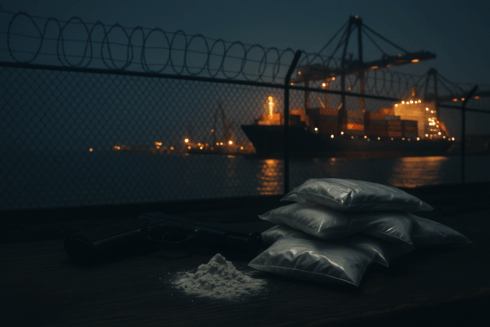SOMETHING is rotten in the state of Belgium – and the stench is emanating from the country’s largest port.
An investigating judge in Antwerp recently broke his silence to warn that Belgium is ‘becoming a narco-state’.
He spoke anonymously for fear of his life in a letter, verified by Politico Europe and The Brussels Times, that carries more weight than the usual chirpings of the chattering classes.
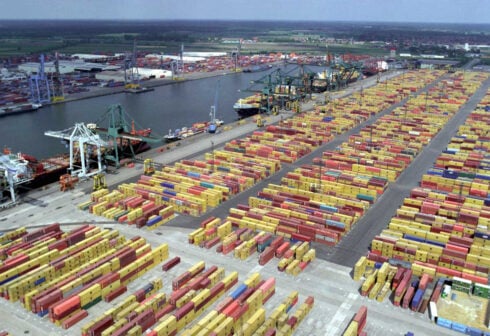 One hundred and sixteen tonnes of cocaine were seized at the Port of Antwerp in 2023
One hundred and sixteen tonnes of cocaine were seized at the Port of Antwerp in 2023
In it he described a country where cocaine cartels have embedded themselves so deeply in the state’s machinery that they now form a ‘parallel power’.
The judge painted a portrait of Belgium’s second city, Antwerp, as Europe’s new Medellín: a port riddled with corruption, where dockworkers are bribed for €100,000 to move a single container, and where judges and police live under protection after a wave of kidnappings, assassinations and bomb attacks linked to drug clans.
The investigating judge – roughly equivalent to a chief magistrate who also directs criminal investigations – warned that criminal organisations have penetrated every layer of public life.
Customs officers, police, municipal staff, even members of the judiciary, he said, had been compromised. “We have lost control. We are becoming a narco-state,” he wrote.
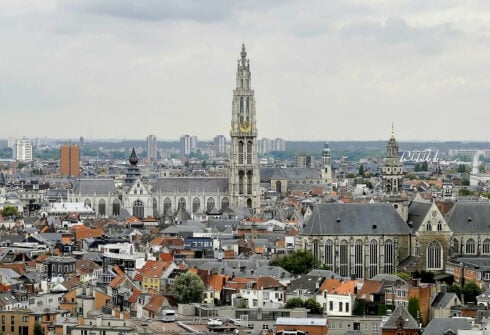 An Antwerp judge has written a letter claiming Belgium is becoming a narco state
An Antwerp judge has written a letter claiming Belgium is becoming a narco state
His words have set alarm bells ringing across the capitals of the European Union – but nowhere should they ring louder than in Spain.
Because if Antwerp is the northern gateway for Europe’s cocaine, Spain is its southern one – and many of the same warning signs are already flashing red.
The Port of Antwerp seized 116 tonnes of cocaine in 2023, up slightly from 2022.
But in the same period, Spain intercepted 117 tonnes; a haul which constituted a massive doubling of the quantity seized the year before.
Spain’s Prosecutor’s Office Report for 2024 lays out, in sober bureaucratic prose, what the Belgian judge described in panic.
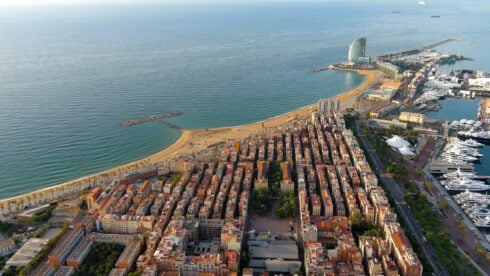 There are fears that Spain could suffer the same fate as Belgium is facing – and become a narco state
There are fears that Spain could suffer the same fate as Belgium is facing – and become a narco state
The country’s three main ports – Valencia, Barcelona and Algeciras – have become key entry points for Latin American cocaine.
The report admits that ‘non-anecdotal’ cases of corruption among port workers and police officers have been uncovered, including Guardia Civil agents charged with laundering drug money and customs staff caught collaborating with traffickers.
In Algeciras, prosecutors warn that the criminal economy has become so entrenched that narco-networks now employ logistics managers, drone operators, and accountants.
Like Belgium, Spain’s law enforcement is also under siege.
The report notes a steep rise in violence, with traffickers in the Strait of Gibraltar ramming police boats and opening fire on patrols in the Guadalquivir river.
At the same time, international gangsters murder one another on the streets of Marbella and Fuengirola, in a geographical neighbourhood that is becoming known as the Costa del Sol triangle.
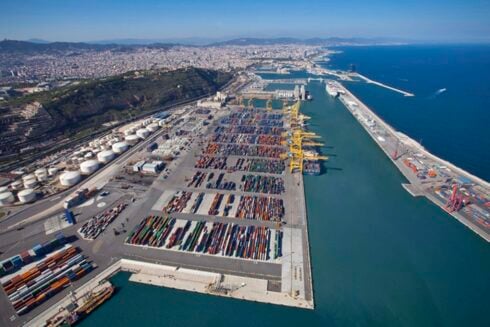 Barcelona port is another that has had a chequered past with infiltration by narco traffickers
Barcelona port is another that has had a chequered past with infiltration by narco traffickers
Even the methods are the same. Both countries have struggled with encrypted communication systems like EncroChat and Sky ECC, which prosecutors say enabled vast criminal networks to coordinate shipments and assassinations across borders.
Belgian investigators were among the first to exploit decrypted data from those networks; Spain now uses the same material in more than a hundred prosecutions, according to the National Court.
In both nations, the cartels’ preferred weapon is corruption.
The Antwerp judge accused his government of complacency – of letting cartels ‘buy peace’ through bribes.
Spain’s prosecutors, though less dramatic, concede that corruption ‘facilitates criminal penetration’ of port infrastructure.
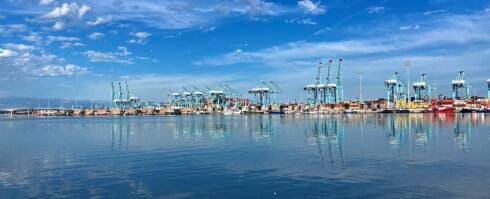 Algeciras is Spain’s biggest port – and was also home to its biggest drugs haul of 13 tonnes of cocaine in October 2024
Algeciras is Spain’s biggest port – and was also home to its biggest drugs haul of 13 tonnes of cocaine in October 2024
They cite recent convictions of Guardia Civil officers in Algeciras and Cartagena for aiding smugglers and laundering profits.
More shockingly, Spanish authorities arrested the head of the Policia Nacional’s economic-crimes unit in Madrid last year in connection with a record seizure of 13 tonnes of cocaine hidden in a container of bananas at the port of Algeciras.
When they searched the home of Oscar Sanchez Gil, investigators found €20 million in cash hidden in the walls, along with a fleet of luxury cars parked outside in the driveway.
The arrests paint a grimly familiar picture: under-resourced front line officers, an overstretched justice system, porous ports, and a class of underworld gangsters growing rich off Europe’s insatiable demand for cocaine.
Yet Spanish prosecutors point out one crucial difference that separates their country from Belgium’s nightmare scenario.
 The head of the Policia Nacional’s economic-crimes unit, Oscar Sanchez Gil, was arrested in Madrid last year for corruption.
The head of the Policia Nacional’s economic-crimes unit, Oscar Sanchez Gil, was arrested in Madrid last year for corruption.
Where the Belgian magistrate admits defeat in the face of the narcos, Spain’s most recent Prosecutor’s Office Report not only acknowledges the threat; it documents the counterattacks.
It describes the implementation of a national asset-recovery protocol, the expansion of international cooperation through Eurojust, and the validation by Spain’s highest courts of EncroChat evidence — allowing judges to dismantle the encrypted empires that once made traffickers untouchable.
It also names its own weaknesses openly: scanner corruption at Malaga port; inadequate inspection rates at Algeciras; and the need to end the culture of ‘competitiveness’ between ports that has led to security shortcuts.
Spain’s transparency itself is a form of resilience.
The prosecutors’ 500-page report details the flaws in their anti-narcotics machinery, but it is evidence that the system is functioning – still self-correcting in the teeth of the narco challenge to the state.
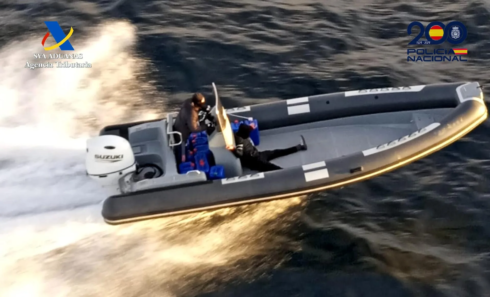 A simple one-motor narco boat operating in the Strait of Gibraltar
A simple one-motor narco boat operating in the Strait of Gibraltar
By contrast, Belgium’s warning came not from an institution but from an individual in hiding.
The distinction is telling.
Both countries sit on the front lines of Europe’s cocaine trade, facing infiltrated ports, corrupt officials and an escalating arms race between cartels and the state.
But Spain still retains what Belgium’s judge fears his country has lost: the confidence that its institutions can fight back.
Unlike Belgium, where the threats and violence have reached the lawyers, the judges and even the country’s royalty, Spain’s gunfire remains confined to the logistics routes.
The narco scourge does not extend beyond the narcolanchas of the Campo de Gibraltar, the warehouses of Cadiz and Huelva, and the mafias embedded along the Costa del Sol.
It is bloody and brazen, but not yet the random urban terror that has turned parts of Antwerp into war zones.
The Belgian judge’s phrase ‘we are becoming a narco-state’ may not apply south of the Pyrenees – yet.
Click here to read more International Affairs News from The Olive Press.
